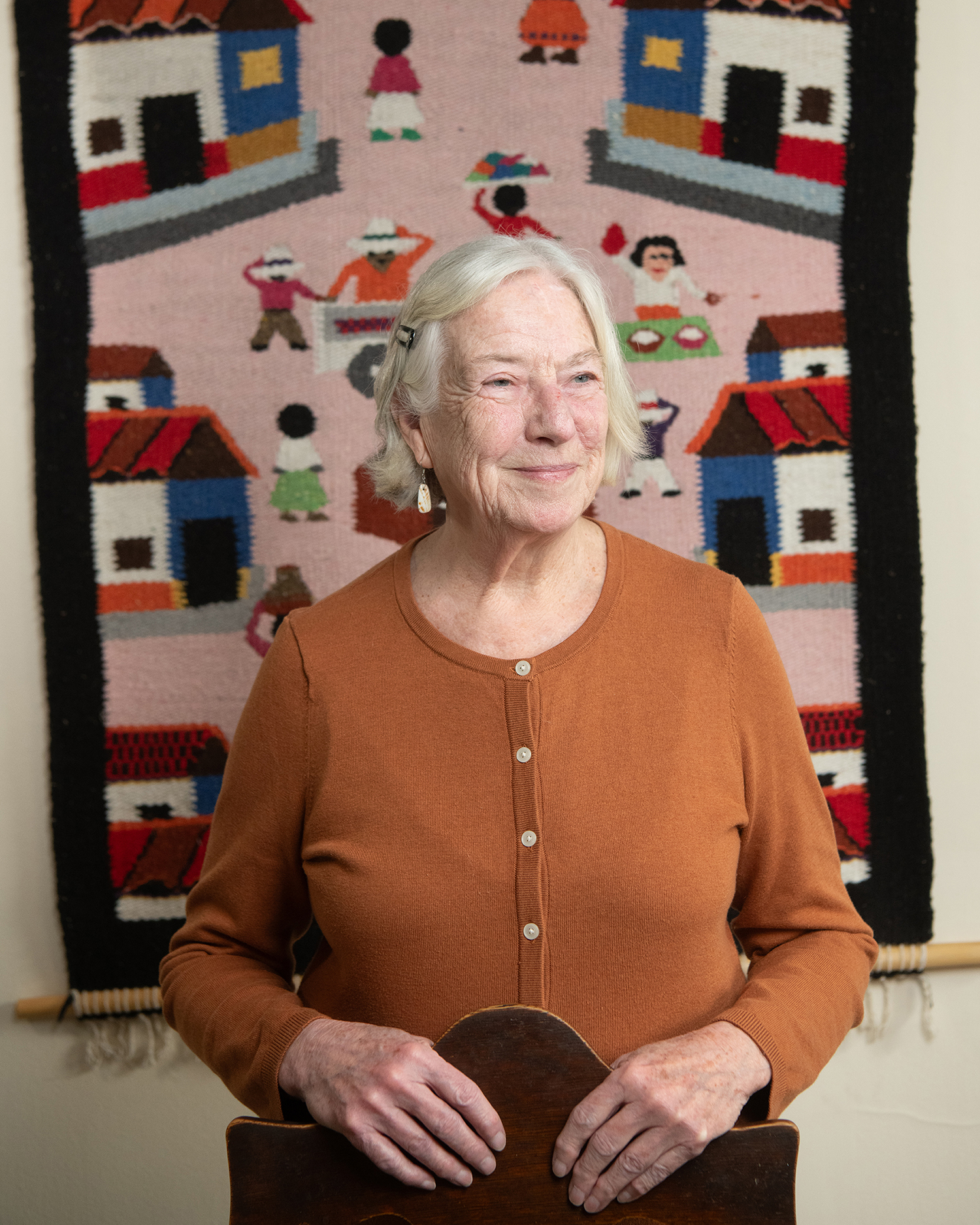Community Champion of Equity and Justice Award Winner: Baltimore Racial Justice Action
January 22, 2025 UMB Staff
The Black-led, multiracial, and intergenerational organization focuses on anti-racism/anti-oppression consulting and public education while working to effect transformative change and racial justice.
The University of Maryland, Baltimore (UMB) will present its Community Champion of Equity and Justice Awards at the 2025 Rev. Dr. Martin Luther King Jr. and Black History Month Celebration on Feb. 6. Baltimore Racial Justice Action will receive one of the awards.
Photo: Dottye Burt-Markowitz, co-founder of Baltimore Racial Justice Action
Baltimore Racial Justice Action (BRJA) has come a long way in 22 years. Just ask Dottye Burt-Markowitz, who was there at the beginning when a multiracial, intergenerational group of people dedicated to racial justice came together in 2003.
“My role at BRJA has ranged from co-founder, staff person, and Advisory Board member. Now I am a volunteer and mentor to younger white people who are taking on responsibilities at BRJA. You name it, and I’ve been part of something with BRJA the whole time,” said Burt-Markowitz said.
BRJA is a Black-led, multiracial, intergenerational organization focusing on anti-racism/anti-oppression consulting and public education while working to facilitate transformative change — individually, institutionally, and ultimately societally — toward racial justice and justice related to other oppressive systems.
(Watch a video about Baltimore Racial Justice Action below or on YouTube.)
It works to provide tools and services to organizations and individuals interested in working to dismantle the anti-Black, white supremacist power structures within most U.S. institutions that disproportionately impact the livelihoods, health, and well-being of Black and non-Black people of color and communities, and to assist connections being made to other forms of oppression.
“We started out as a learning community,” Burt-Markowitz said. “We gathered together people who were working around racial justice issues, and we started talking about what kind of organization we could be to focus attention on racism and white supremacy. There was no one else really doing this kind of work at that time.
“Our initial focus was challenging white people to recognize that it was their responsibility to dismantle white supremacy,” she added. “When anti-Black violence was in the news, media questions were directed to Black leaders as if the injustices were their responsibility to address.
“Three of the co-founders — A. Adar Ayira, Stan Markowitz, and I — had designed and offered a racial justice workshop series called ‘Agents of Change,’ which BRJA adopted as its initial educational activity. The focus shifted as visible leadership of Black and non-Black people of color became imperative. Now, as the assault on diversity, equity, and inclusion, critical race theory, and any effort toward racial justice looms, it’s time again for white members of BRJA and all social justice groups to step up visibly against the effort to erase the progress that has been made toward racial justice.
“We must continue to do educational and consultation activities to help individuals, organizations, and communities in general understand the history of this country and how without understanding that history, we’re not going to be very effective in promoting racial justice and an end to white supremacy.”
Today, BRJA provides training, consulting, and coaching to nonprofits and other community organizations across Baltimore and the state of Maryland. Among its partners is the Center for Restorative Change at the University of Maryland School of Social Work (UMSSW), which collaborates with BRJA to introduce the SHARP framework for anti-racist and anti-oppressive human service practices to a number of public and private social service agencies.
SHARP was created by Wendy E. Shaia, EdD, MSW, clinical assistant professor at UMSSW and executive director of the Center for Restorative Change (CRC).
“The leadership of BRJA and I would like to express our appreciation to the Center for Restorative Change, and particularly to Wendy Shaia and [staff members] Christopher Beegle, Stacey Wilson, and Nia Speaks, who all made it possible for the partnership to take place, as well as to the University of Maryland, Baltimore,” Burt-Markowitz said. “Partnership with the CRC has really been so helpful in expanding our impact in industries who express interest and commitment in addressing the challenges of the world around us.”
Among its activities, BRJA holds free monthly events to cultivate continuous dialogue, learning, action, and connection; workshops to provide insight into how racism operates in the United States and offer practical tools for creating healthier, more equitable communities; and a coaching program designed to tackle challenges and embed anti-racism principles into an organization’s core practices to effect lasting change.
“I believe that BRJA’s work has opened people’s eyes, especially white people’s eyes, to issues we had been so unaware of because we were raised to be unaware of them, especially by our families and by our educational institutions,” Burt-Markowitz said. “I am proud that the work is done with such integrity and such compassion that is combined with a willingness to speak honestly and hold people accountable for what they’ve committed to doing.”